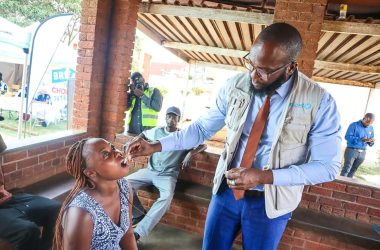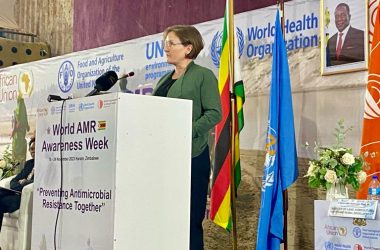 By Conrad Mwanawashe
By Conrad Mwanawashe
Africa should build on its rich knowledge systems and harness the diverse flora and fauna endowment through the deployment of science, technology and innovation, to establish a vibrant African Traditional Medicines’ pharmaceutical industry as a means to end HIV/AIDS on the continent.
The mantra “African solutions for African problems” must transcend to the manner the continent addresses epidemics and other existential threats promoting Intra-Africa collaboration and partnerships with the private sector and development partners, harnessed to leap forward our response, according to President Emmerson Mnangagwa.
President Mnangagwa was officially opening the 22nd International Conference on AIDS and Sexually Transmitted Infections (ICASA) in Harare.
“As a Continent, we must harness our rich and diverse flora and fauna endowment through the deployment of science, technology and innovation, to establish a vibrant African Traditional Medicines’ pharmaceutical industry.
“We must, as Africa, never shy away from building-on our rich African knowledge systems and God given resources to have scientifically viable medical products and solutions for our communities. Through such an approach, we should reverse the high disease burden and related mortality on our continent,” said President Mnangagwa.
One such area where African solutions are being required is in research and development around HIV where President Mnangagwa said Africans must proffer the solutions needed to address challenges on the continent.
“Others from elsewhere should come to help and complement us, based on our own developmental priorities. Hence, the mantra “African solutions for African problems” must transcend to the manner we address epidemics and other existential threats of our times,” he added.
ICASA ran under the theme: AIDS is not over – Address Inequalities, accelerate inclusion and innovation.
UNAIDS Executive Director, Winnie Byanyima called for localisation of funding of HIV research saying relying on foreign funded research was slowing down Africa’s target of ending AIDS by 2030.
“You find that research can be done here in Africa and our scientists may take part in the clinical trials for all the medicines we have here for HIV. Our own people living with HIV put forward their bodies to be tested on whether it’s for this treatment or prevention but by the end of it when there is a breakthrough, one person, and one company somewhere in the rich countries comes and claims it is my knowledge,” said Byanyima while addressing Journalists on the sidelines of ICASA.
President Mnangagwa called for concrete action plans to promote and achieve HIV funding sustainability.
“Here in Zimbabwe, the National AIDS Trust Fund has contributed over 30% of all our treatment needs and financed various prevention and coordination interventions. We are available to share key lessons learnt, through this approach. Zimbabwe is open for business and ready to welcome investments, joint ventures, partnerships and innovations,” he added.
In his opening address, UN Resident and Humanitarian Coordinator, Edward Kallon, commended Zimbabwe for making “commendable progress in the fight against the HIV epidemic and STIs, as in other countries”, but warned that there are still numerous challenges to overcome in achieving the goal of ending AIDS and STIs.
These challenges include disparities in access to HIV services based on age, gender, and geography. Adolescent girls and young women are disproportionately affected by new infections, while children and key populations have limited access to services. The national-scale implementation of programs targeting these groups is yet to be achieved.
To effectively end the pandemic in line with the 2030 Agenda for Sustainable Development, Kalon said four critical actions must be undertaken:
“First, we need to scale up HIV prevention and treatment programs to cover all subpopulation groups, with a particular focus on adolescent girls and young women.
“Second, community leadership and the engagement of men are crucial in addressing social norms related to gender equality and gender-based violence.
“Third, enacting and enforcing laws and policies for key population groups is essential, as well as sustaining initiatives like social contracting and strengthening evidence generation.
“Fourth, adequate funding and economic opportunities should be allocated to communities, as this will connect individuals to person-centered public health services, foster trust, and hold providers accountable. Additionally, ending stigma and discrimination is a crucial aspect of ensuring that no one is left behind,” according to Kalon.









